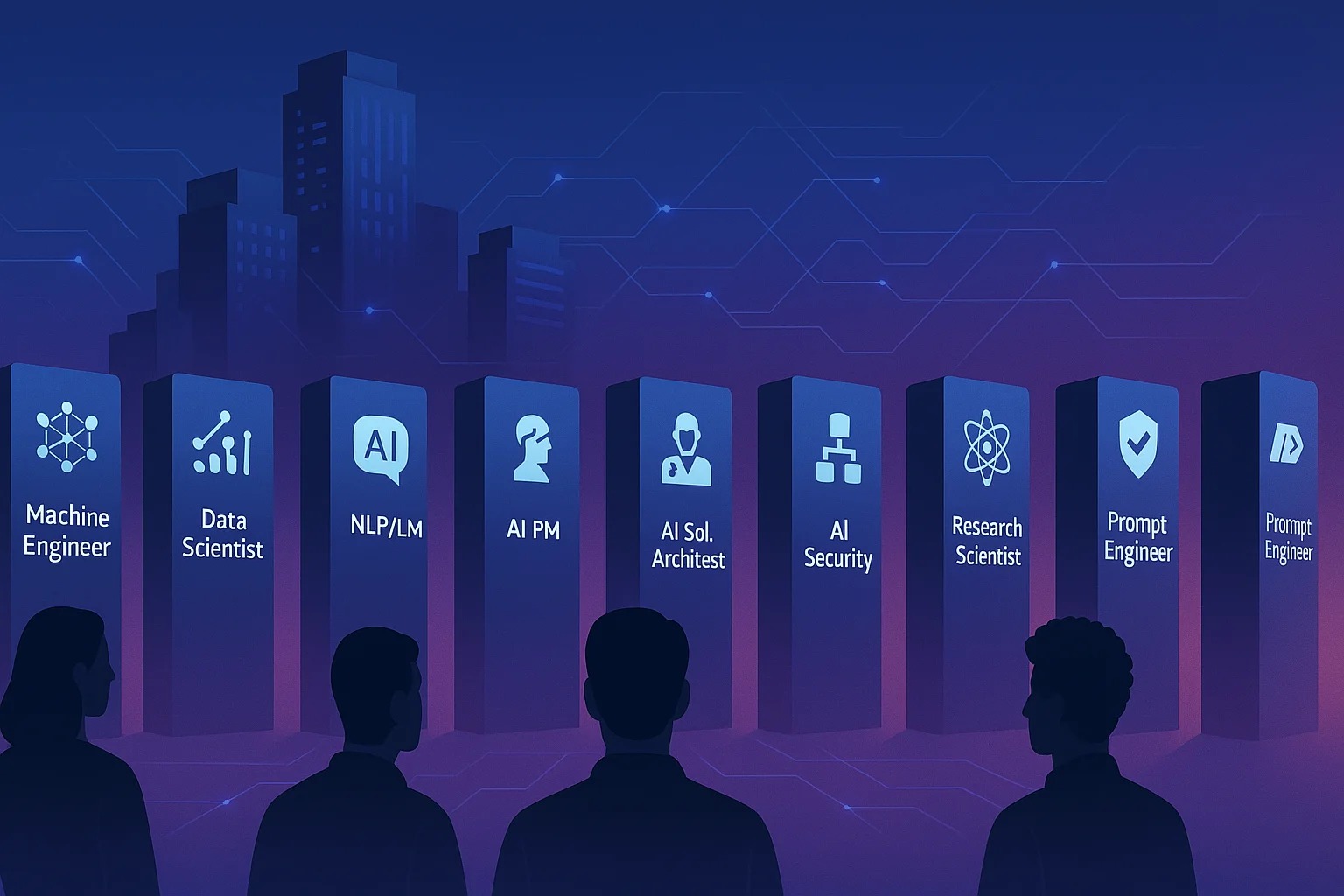Artificial intelligence has transitioned from a futuristic concept to a transformative reality shaping every industry imaginable. From healthcare to finance and from logistics to marketing, AI is driving innovation and redefining how organizations operate. As technology evolves, the demand for professionals skilled in AI continues to surge, creating a wealth of high-paying AI careers that promise both financial stability and intellectual satisfaction. In 2025, AI is no longer just a support system; it’s the core of business strategy, automation, and decision-making, opening new frontiers for professionals ready to embrace this revolution.
Understanding the AI Job Landscape
The AI job landscape in 2025 is more dynamic than ever, with organizations aggressively seeking talent that can develop, manage, and optimize machine learning systems. The growth of generative AI, predictive analytics, and autonomous systems has resulted in an unprecedented demand for professionals who can translate data into actionable insights. Companies are not only hiring traditional data scientists but also expanding their teams to include prompt engineers, AI ethicists, and machine learning product managers. These roles require a mix of technical expertise, creativity, and ethical judgment, making them some of the most prestigious and high-paying AI careers available today.
Why AI Skills Are So Valuable
AI expertise commands high salaries because of its rarity and complexity. Professionals in this field combine advanced programming skills with deep mathematical and statistical knowledge, enabling them to build systems capable of learning and evolving autonomously. Moreover, AI professionals often possess interdisciplinary understanding—combining computer science, linguistics, psychology, and business—to create solutions that truly align with human behavior and market needs. The ability to design intelligent algorithms or optimize existing models can dramatically impact a company’s performance, making AI specialists indispensable assets. The more an AI professional can bridge the gap between technical systems and business outcomes, the higher their earning potential becomes.
Top Roles Defining High-Paying AI Careers
Within the broad field of AI, several roles have emerged as top earners in 2025. AI engineers, for example, are at the forefront of system creation, responsible for developing and deploying algorithms that power automation, vision recognition, and natural language processing. Their average salaries can reach into the six-figure range, reflecting their technical depth and the impact of their work. Data scientists continue to remain among the most sought-after professionals, as organizations rely on them to interpret massive datasets and guide strategic decision-making. Machine learning researchers and AI architects, on the other hand, focus on developing cutting-edge technologies that push the boundaries of what machines can do. These roles are not just lucrative—they are instrumental in shaping the future of technology itself.
Emerging AI Opportunities Beyond Tech
Interestingly, high-paying AI careers are no longer limited to technology companies. AI has now infiltrated almost every sector, from healthcare to law and even creative industries. In healthcare, AI specialists are designing diagnostic systems capable of detecting diseases earlier and more accurately than humans. In the financial world, AI experts are optimizing investment strategies, fraud detection models, and risk management frameworks. Even the entertainment and fashion industries are leveraging AI to create personalized experiences for consumers, highlighting how deeply embedded this technology has become in our daily lives. Professionals with AI knowledge can now find opportunities in almost any domain, making this field both lucrative and versatile.
The Human Element in AI Careers
Despite its technological focus, success in AI is not solely about coding and algorithms. The human touch remains critical. AI professionals must understand human values, ethics, and psychology to ensure that the systems they design operate responsibly and transparently. The integration of empathy and ethics into AI models is becoming increasingly important as the world grapples with questions of bias, privacy, and accountability. Employers are now seeking AI experts who can think beyond technical efficiency—those who can create solutions that respect human dignity and enhance social good. Therefore, the blend of human insight and technological skill defines the modern AI expert and elevates them into the ranks of high-paying AI careers.
Education and Skills Required for AI Success
To build a successful career in AI, individuals must invest in both formal education and practical experience. Degrees in computer science, data engineering, or applied mathematics provide a strong foundation, but continuous learning through online certifications, boot camps, and specialized training is equally important. Proficiency in programming languages like Python, R, and Java is essential, as is familiarity with AI frameworks such as TensorFlow and PyTorch. However, what truly differentiates professionals is their ability to apply theoretical knowledge to real-world problems. Employers value individuals who can transform complex data into actionable solutions that drive business growth. As automation advances, creativity, critical thinking, and problem-solving skills will further enhance career longevity and earning potential.
Future Trends Shaping AI Employment
The evolution of AI careers in the next decade will be influenced by several emerging trends. Generative AI is creating new roles focused on content creation and design automation. Quantum computing, once a niche concept, is now driving research positions that combine physics and AI to solve problems previously deemed impossible. Moreover, the rise of AI regulation has created demand for professionals who specialize in AI governance, compliance, and ethical frameworks. As companies adopt hybrid AI-human collaboration models, new career paths will emerge that value adaptability, strategic thinking, and innovation. The professionals who can stay ahead of these changes will continue to dominate the market of high-paying AI careers.
Building a Long-Term Career in AI
For those aspiring to enter the AI industry, the key to success lies in continuous evolution. Staying updated with new tools, attending AI conferences, and participating in global research communities can significantly enhance career prospects. Networking with experts and contributing to open-source projects not only builds credibility but also provides exposure to real-world challenges. Professionals who approach AI as a lifelong learning journey rather than a fixed skill set are more likely to secure the highest-paying positions. Passion, curiosity, and adaptability are just as important as technical mastery in sustaining success within this competitive field.
Conclusion: The Future Belongs to AI Innovators
In 2025 and beyond, high-paying AI careers represent the convergence of technology, creativity, and human understanding. As the world continues to rely more heavily on intelligent systems, the need for skilled professionals will only intensify. Those who can balance analytical expertise with ethical awareness and innovation will not only enjoy exceptional financial rewards but will also play a pivotal role in shaping the digital future of humanity. Whether you are a student exploring career paths or a professional seeking to pivot, investing in AI skills today means positioning yourself at the forefront of tomorrow’s technological revolution.



